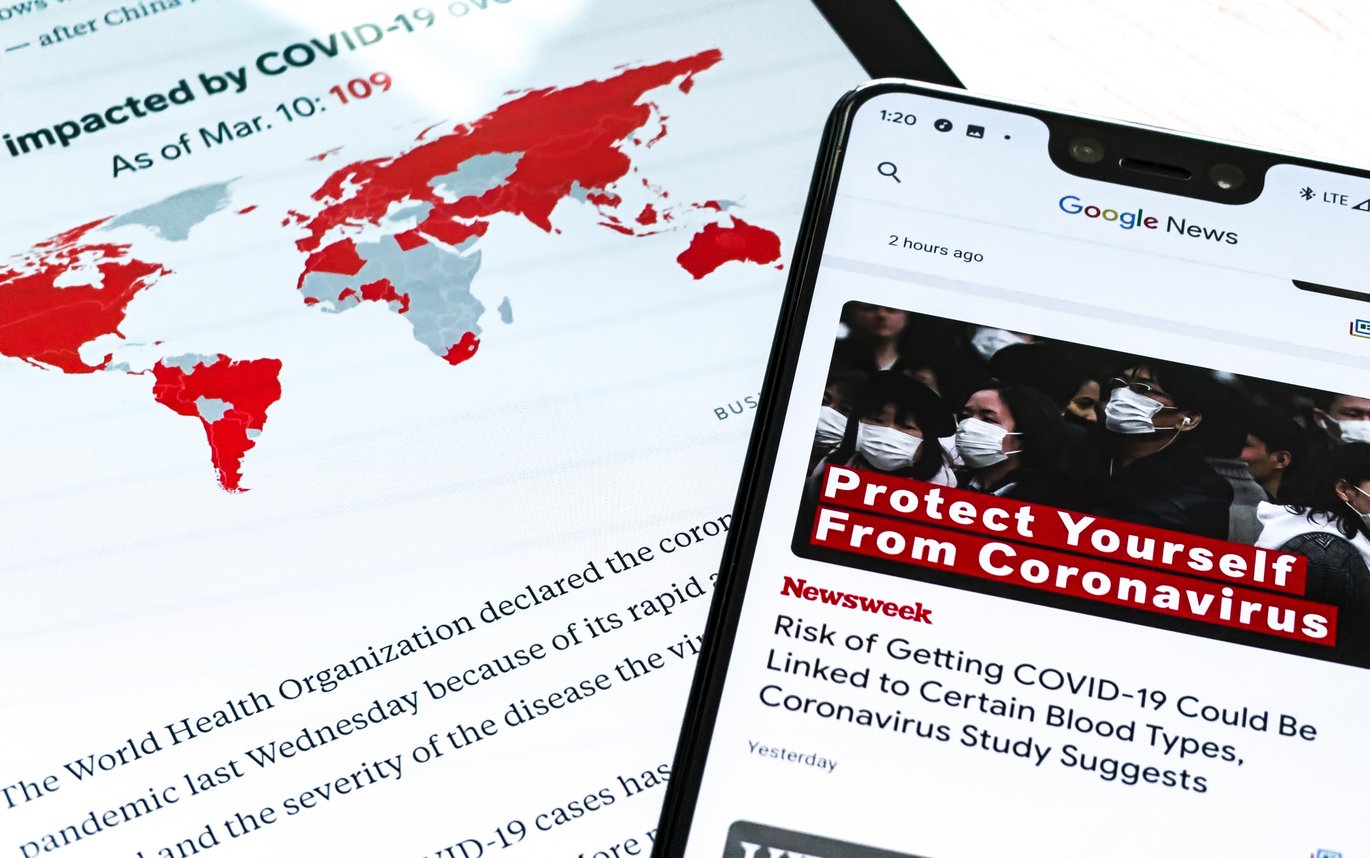New research group to investigate mistrust of scientific expertise online
Mistrust of scientific expertise can have far-reaching consequences for public health. We have recently seen an anti-vaccine movement that has resulted in a measles outbreak and girls who refused to have the HPV vaccine. Now we are confronted with COVID19, where scientific expertise once again needs to stand its ground. A new research network will investigate how mistrust of science expertise arises and spreads online.

In 2019, the World Health Organisation identified the anti-vaccine movement and climate change as two areas of international public health concern. It is also these areas that a new interdisciplinary research group at Aarhus University, funded by an AUFF NOVA grant, has set out to investigate in relation to mistrust of scientific expertise. The project will also closely follow the development of COVID19.
At the very moment we concretely express our mistrust online, we give it life.
“We have chosen to investigate these cases in order to see whether there are communicative differences between them. What is it that is used as legitimation for people not to believe in scientific expertise? Is it that they have heard about someone who got ill by having the HPV vaccine? Or is it public debate that acts as a breeding ground for uncertainty as to whether we should trust experts?”, explains Associate Professor Antoinette Fage-Butler, who is leading the research group and has previously researched the topic of building trust within written health communication.
Mistrust is more than a psychological phenomenon
Until now, mistrust has dominated the research field as a psychological phenomenon, but the research group at AU will adopt an interdisciplinary perspective and distinguish themselves by, among other things, their empirical approach, where they will investigate mistrust on the basis of current data from available websites and historical data from Netarkivet (the Danish net archive).
“We have chosen to investigate digital data because the internet has typically been associated with the spreading of mistrust. Among other things, we will investigate how mistrust often arises online and construct algorithms for how mistrust spreads online. By comparing data about climate change scepticism, the MMR vaccine and COVID19, we will improve our understanding of mistrust and its spread,” explains Antoinette Fage-Butler.
We saw that, in the United Kingdom, the experts’ warnings were ignored by the majority of those who voted for Brexit
We bring mistrust to life with words
The research group will examine mistrust of scientific expertise from a cultural and temporal perspective. Antoinette Fage-Butler explains:
“We will explore mistrust as a created discourse. In other words, at the very moment we concretely express our mistrust online, we give it life. For example, if a women in a patient forum asks whether she should vaccinate her daughter, she questions the experts’ recommendations. This can create mistrust, since mistrust is contagious, and it is our words that carry it.”
Increasing popularism is, according to Antoinette Fage-Butler, one of the great challenges of our time in relation to mistrust of scientific expertise:
“We saw that, in the United Kingdom, the experts’ warnings were ignored by the majority of those who voted for Brexit, and the nationalistic rhetoric won”. For decades we ignored researchers’ general consensus about the climate, and it was only with Greta Thunberg that the wider population began to listen seriously. And today, in the midst of the Corona pandemic, we can see that politicians continuously urge the population to listen to the experts. Despite this, we can see online – especially on social media – that other forms of ‘advice’ are being propagated alongside science-based advice, and this is spreading misinformation.
Mistrust changes over time
By gathering current data and data from Netarkivet, the research group will examine how mistrust develops over time. How it often starts somewhere, grows and spreads, and how it changes. Researchers can already see examples of this.
“In 2019-20, people saw with their own eyes what happened with the extreme forest fires in Australia, which were most likely exacerbated by climate change. Following this, climate change scepticism appeared to diminish somewhat. Conversely, we have also seen that scepticism surrounding the MMR vaccine has increased in some countries, which have subsequently lost their measles-free status. It will now be interesting for us to see how things develop with COVID19”, concludes Antoinette Fage-Butler, who also encourages researchers with a potential interest in the project to contact her.
Facts
The project “Mistrust of scientific expertise: Exploring a cultural phenomenon” has received DKK 570,000 to support its research and networking activities. These funds are provided by an AUFF NOVA grant, which aims to stimulate the launch of bold and innovative research projects. Projects funded by AUFF NOVA must forge new roads and have the potential to lead to scientific and scholarly breakthroughs.
The research group consists of: Associate Professor Antoinette Fage-Butler (School of Communication and Culture, AU), Associate Professor Kristian Hvidfelt Nielsen (Department of Mathematics, AU), Associate Professor Loni Kraus Ledderer (Department of Public Health – Health Services Research), Professor Niels Brügger (Media Studies, leader of NetLab, AU) and Associate Professor Kristoffer Laigaard Nielbo (Center for Humanities Computing, AU).
Contact
Associate Professor Antoinette Fage-Butler
The School of Communication and Culture - English
Tel.: 87165075
Mobile: 93521773
Mail: fage-butler@cc.au.dk
